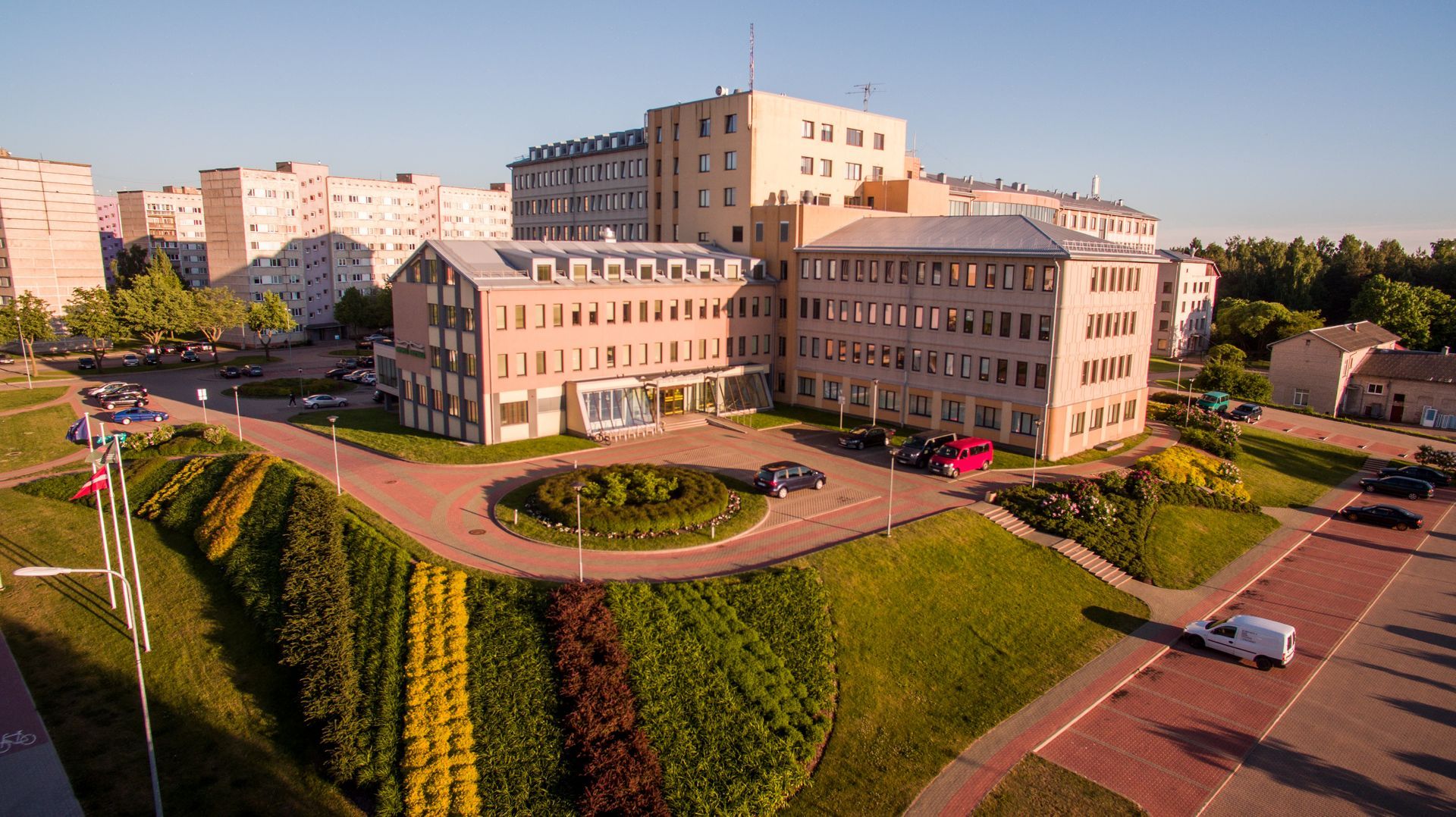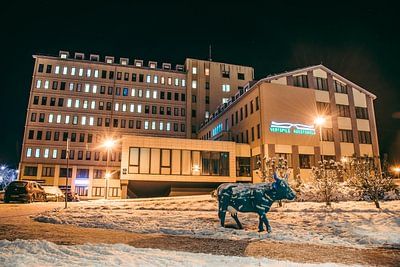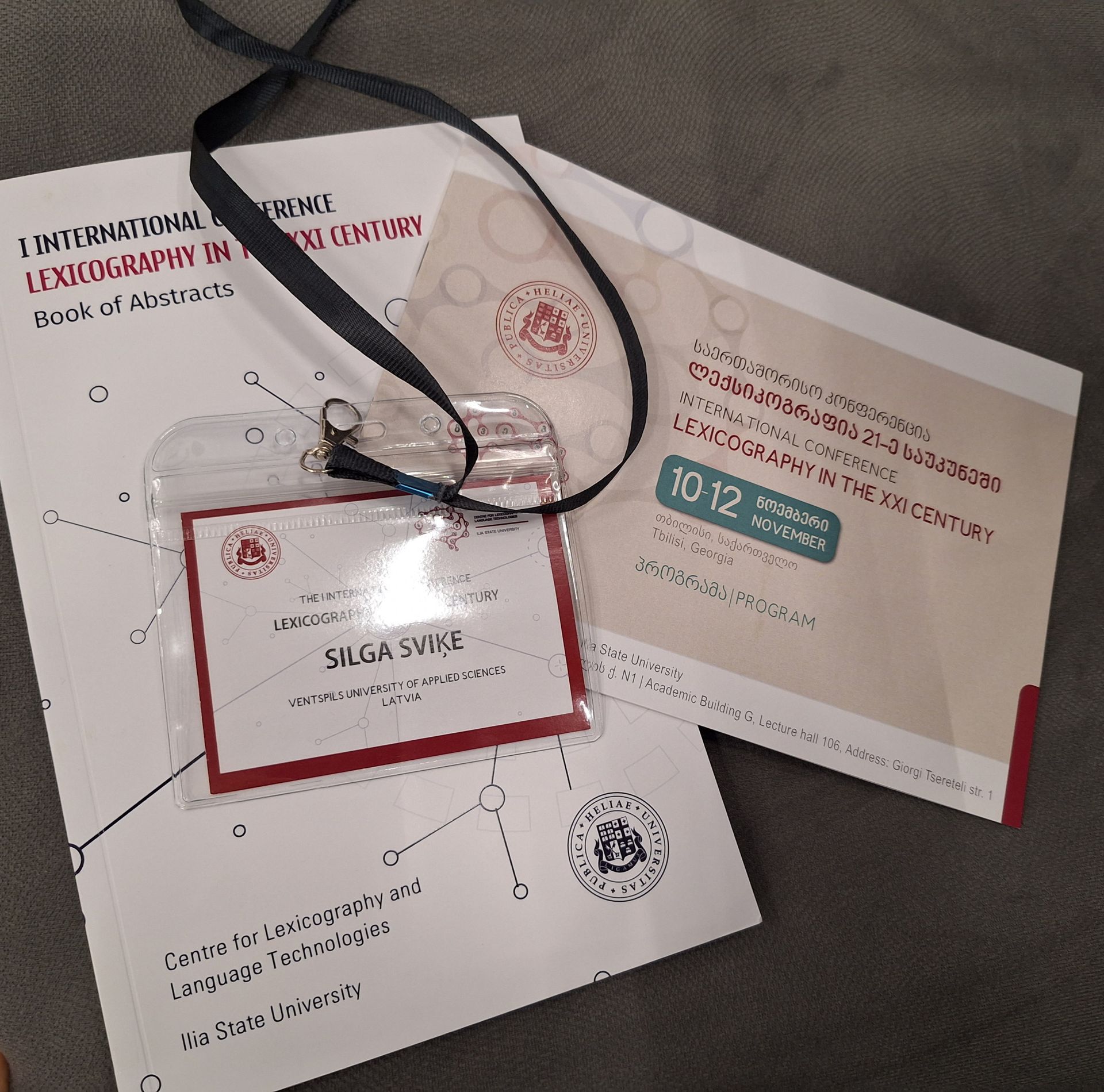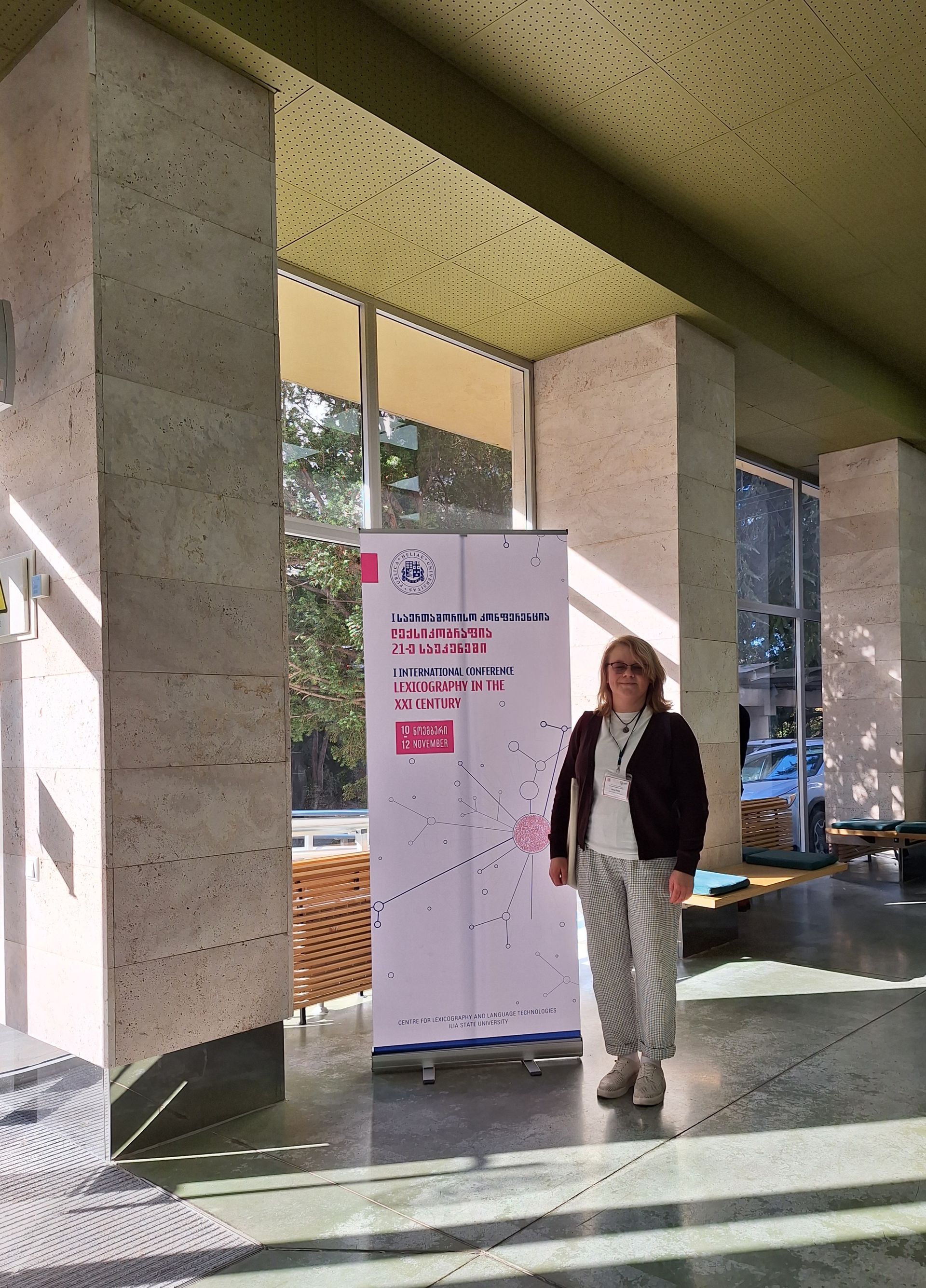Silga Sviķe participates in an international lexicography conference in Tbilisi
Dr. philol. Silga Sviķe participated in the international scientific conference “Lexicography in the XXI Century”, organized by Ilia State University in Tbilisi, Georgia, from November 10th to 12th, with her research titled “An Insight into the Entry Word Selection for a Specialized Dictionary: Plant Names”. Researchers from Georgia, Italy, Denmark, Austria, Germany, Armenia, the USA, and other countries took part in the conference.
In the conference’s poster presentation section, Silga Sviķe provided insights into the resources used for word selection in the entry of the specialized botanical dictionary, including the database developed in the project “Smart Complex of Information Systems of Specialized Biology Lexis for the Research and Preservation of Linguistic Diversity” (Project No. lzp-2020/1-0179, IMDS), which will be published at the end of 2023 on Bioloeksipēdija.lv. The study developed a model for selecting specialized lexicon for a small-scale industry-specific dictionary, with a particular focus on analyzing the so-called external (entry words) and internal (information) selection.
Lexicography is still an important research topic in the 21st century. After dictionaries were first created using paper cards and then with language corpora, it is now going through a third change – the use of artificial intelligence (AI) solutions.
Current research in lexicography focuses on using AI solutions to develop both the macrostructure and microstructure of dictionaries. The experienced Danish lexicographer Lars Trap-Jensen prepared the summary of his plenary talk using “ChatGPT”, and this summary was accepted as good without significant mistakes. Although lexicographers are still needed for serious dictionary work, the plenary talk recognized that AI solutions make it much easier to create dictionary drafts and samples, which take a lot of time and effort. The conference also talked about the drawbacks of AI solutions. It was pointed out that while AI has access to a lot of data, it can’t sort data by quality. Also, it doesn’t guarantee reliable or repeatable results, which are crucial for scientific research. With “ChatGPT”, it is not possible to go back to the result previously offered by the software, as would be possible with serious lexicographic resources. At the end of the discussion, it was concluded that the use of “ChatGPT” does not mark the end of the lexicography field, but rather, all new solutions are tools that can be helpful, as long as the lexicographer knows how to use them skillfully.
Professor Pius ten Hacken from the University of Innsbruck gave a plenary lecture on theories of lexicon development and decision-making, which can be applied in dictionary creation. Meanwhile, Professor Tinatin Margalitadze from Ilia State University—author of several dictionaries and chair of the conference’s organizing committee—presented a comprehensive overview of Georgia’s lexicographic traditions and modern approaches. In Austria, terminology work is largely driven by commercial enterprises, while in Georgia, dealing with terminology issues is primarily the responsibility of the academic community.
The conference also addressed the low level of dictionary usage skills among school students—and sometimes even university students. One of the reasons is that language teachers themselves often don’t feel confident enough to teach students how to use dictionaries effectively. Dictionaries are still a trustworthy and essential resource for learning and study. This lack of confidence among teachers is often due to the fact that they haven’t learned dictionary didactics, as such a course is not currently offered. In Georgia, serious efforts are being made to teach dictionary use already in primary school, aiming to develop a strong lexicographic culture in the country. In Hungary and Slovakia, the situation regarding dictionary didactics is similar. It seems that Latvia should also consider moving in this direction and adopt best practices by offering such lessons for teachers, students, and schoolchildren. The conference discussions concluded that both lexicography resource developers and users need to be educated in order to raise awareness about the risks and opportunities for both groups.
Looking to the future, the conference emphasized that the subject of lexicography research may change, but knowledge in lexicography will always be needed. It will provide advantages in the effective use of existing resources and understanding of resources to be developed in the future. The conference acknowledged that it is easier to introduce a lexicography course as an important and essential part of language learning programs, rather than having lexicographers try to find solutions for users who have never heard of dictionary structure. The conference recognized that the dictionary should be an important object and tool in every culture to preserve the lexical richness of every language.
Research is being conducted on incorporating dictionary models into online language learning resources, where words in written texts are lemmatized and linked to the dictionary section of the resource. These kinds of solutions are very convenient for users. However, polysemy and words with specific meanings still pose a major challenge for such systems, and solutions are still being sought.
Several papers were devoted to the problems of terminology, offering interesting solutions, such as the integration of term databases into machine translation systems, and the use of different term management systems in the translation process. Several researchers focused on the study of blends, barbarisms, and neologisms.
Conference programme: https://lexicography21.iliauni.edu.ge/en/program/
Collection of summaries: https://lexicography21.iliauni.edu.ge/en/book-of-abstracts/
The conference proceedings are expected to be published at the end of 2024.
Participation in the conference was funded by the project “Smart Complex of Information Systems of Specialized Biology Lexis for the Research and Preservation of Linguistic Diversity”, project No. lzp-2020/1-0179.
Share on other platforms
Other news











